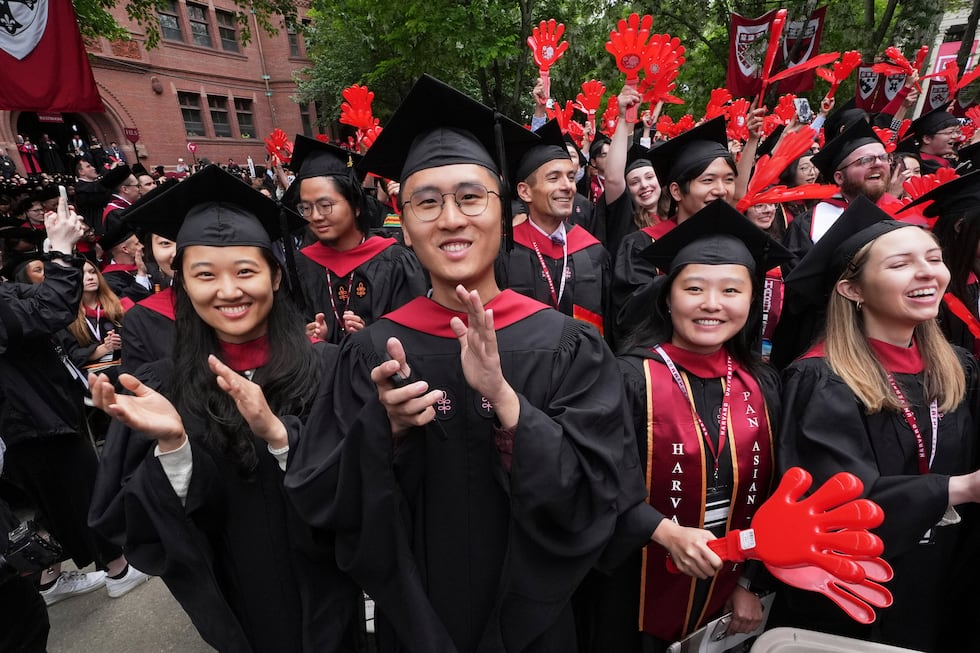From Harvard to West Point — The Underlying Logic of Trump’s Regulation of University Education
Addressing the cadets, Trump said, “You are the first batch of graduates in the golden age.”* He added that many Americans fail to recognize the country’s current prosperity, underestimating what he described as the “immediate results”* of his leadership. This was not Trump’s first visit to West Point. When he last visited, the nation was in the midst of the Black Lives Matter movement, when institutions across the country — including West Point — were reflecting on systemic racism. Five years later, Trump returned to a drastically transformed academy, undergoing reforms aligned with his ideals. In just four months, West Point has completed what Trump supporters call a “course correction.” The academy has stopped the promotion of diversity, equity, and inclusion initiatives; ended instruction of “critical thinking;” banned transgender individuals from military service; and removed “woke” content and liberal ideologies from its curriculum. The school has refocused its mission on cultivating “combat readiness” rather than emphasizing absolute racial and gender equality ideology.
At the national level, Trump recently dismissed a gay general and made major personnel adjustments in the military leadership. On June 14 — the 250th anniversary of the U.S. Army and Trump’s 79th birthday — he is set to review the troops in a parade on the National Mall in Washington, D.C.
As commander in chief, Trump holds the authority to reform the military, and service members are subject to military law if they fail to comply. Therefore, the implementation of Trump’s executive orders in the military has been relatively smooth. However, his efforts to reshape civilian higher education have been met with more resistance. To push his agenda, Trump has used two allies: Education Secretary Linda McMahon and Homeland Security Secretary Kristi Noem. McMahon’s mission is to dismantle the Department of Education, reflecting Trump’s beliefs that education policy should be delegated to the states. He argues that the current emphasis on supporting marginalized groups in education has gone too far.
Noem, formerly the governor of South Dakota and once considered a front-runner for vice president, is an avid Trump loyalist. This time, when Trump formed his cabinet, she became the Secretary of Homeland Security. This department, created after the 9/11 attacks in 2001, has considerable authority in protecting border security, combating illegal immigration and drugs, and managing foreign students. Over the past 20 years, the role of the Homeland Security Department has increased significantly. In contrast, the status of the National Security Council, mainly responsible for diplomatic and security affairs, has declined significantly. This shift has become more dramatic in Trump’s second term. National Security Advisor Mike Waltz was pushed out early, following fallout from the “chat-leak scandal.” More significantly, he was considered insufficiently loyal to Trump and was eventually reassigned to New York as the U.S. ambassador to the United Nations.
As the primary agent for U.S. foreign affairs, the State Department has long existed in a delicate power dynamic with the National Security Council, established to coordinate diplomacy. Tensions between the two are not new; when Henry Kissinger was the national security advisor, he often clashed with then-Secretary of State William Rogers. Today, Marco Rubio heads both institutions. With his loyalties aligned to the State Department, it is unsurprising that the National Security Council has been sidelined, effectively dismantled.
Since taking office, Secretary Noem has launched a campaign to arrest undocumented immigrants, a campaign that has extended to university campuses. This crusade particularly targets student activists involved in the pro-Palestinian movement that has gained traction since last year. Some of these students also staged campus occupations, leading some Jewish students and faculty to report feeling increasingly threatened. In Trump’s view, rising antisemitism is closely linked to universities' tolerance of such activism. Secretary of Education McMahon has ordered Harvard University to overhaul its multicultural education; Noem has demanded Harvard hand over detailed information on its international students, including participation in political activities and antisemitic speech. These measures are the groundwork for the deportation of these so-called “troublemakers.”
The Trump administration has frozen $2.7 billion in government funding and threatened to cancel Harvard University’s tax-exempt status, putting enormous pressure on the school. Most recently, Noem gave an ultimatum by revoking Harvard’s authorization to enroll international students by denying its access to the Student and Exchange Visitor Program. Without SEVP certification, no international student can legally study in the U.S. because the F-1 or J-1 visas they hold would be invalid.
Although a federal judge in Boston has temporarily blocked the Trump administration’s executive order, thousands of international students at Harvard University remain in a state of panic. Once the pride of their families, these students have now become “hostages” of domestic political struggles in the United States and student “refugees” overnight, something they could have never imagined.
West Point has emerged as a successful example of Trump’s higher education overhaul, while Harvard has emerged as a bad example. In putting extreme pressure, even resorting to what some have called “shock therapy” on Harvard, Trump has clearly struck a nerve. As a bastion of liberal ideology, Harvard has long been viewed as rebellious in the eyes of Trump. Given Trump’s confrontational personality, he is unlikely to back down. Not only does he want to transform the Republican Party, he wants to use the opportunity of being in power to transform all of American society. The “woke culture” prevalent in American universities is the enemy of Trump’s ideology, and he must get rid of it as soon as possible. If Harvard wants to retain the privilege of recruiting international students, it may have to make some compromises. Relying solely on the legal expertise of its law school alumni may no longer be enough.
*Editor’s note: These quotes, accurately translated, could not be independently verified.


